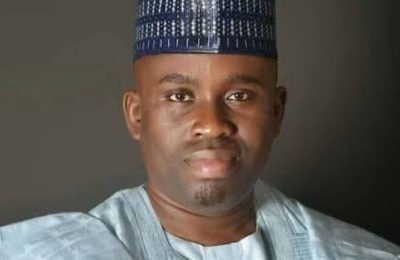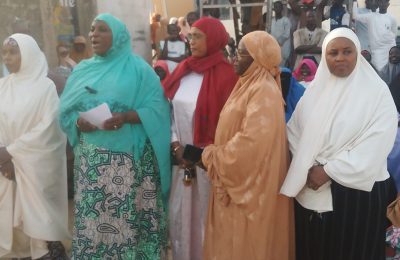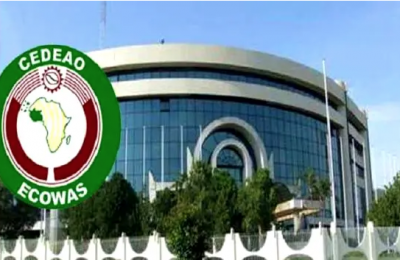
Former Chairman, Nigerian Bar Association (NBA), Dr Olisa Agbakoba, said President Bola Ahmed Tinubu’s first year in office has laid the groundwork for significant progress, with notable achievements in various sectors, noting that the right policy choices had been put in place, but implementation had remained the challenge.
Agbakoba made this observation on Friday while assessing 365 days of the Tinubu administration at a press conference, which took place in his office in Apapa, Lagos, saying that the president in his first year in office made
notable progress across several areas outlined in his “Renewed Hope” campaign manifesto.

According to the former NBA president, some of the achievements included removal of fuel subsidy and floating exchange rate to save costs and unify FX markets, despite short-term pains, approval of a committee on modalities for establishment of State Police, investment in Military equipment and food security measures and signing a new Electricity Act that allows participation of states and private players in the power sector.
Others, he said are in the area of infrastructure, where the administration was able to secure funding for major seaport, rails road, and power plant projects; positioning Nigeria as a stabilizing force in Economic Community of West African States (ECOWAS), which had boosted FDI inflows to over $15billion, rehabilitating of refineries and incentivizing new private refineries, among others.
Agbakoba, however, posited that what was needed by Tinubu’s government to fully realize his transformative vision and deliver on his campaign promises was to focus on key areas that would make the most impact such as security, power, and an emergency industrial revolution.
According to him, if President Tinubu can solve these critical issues, it will release kinetic energy and accelerate progress in the country, adding that it was equally crucial for his administration to increase its pace of implementation, which he observed was slow, while the nation wants to see the same urgency and decisiveness demonstrated by former United States President Franklin D. Roosevelt (FDR) during his first 100 days.
He recalled that Roosevelt took decisive and transformative actions in his first 100 Days, setting a benchmark for evaluating presidents, noting that his “New Deal policies addressed the Great Depression with unprecedented urgency, scale, and specificity, creating millions of jobs, launching massive public works projects, and establishing new institutions that reshaped the American economy and society.”
“President Tinubu’s first year in office has laid the groundwork for significant progress, with notable achievements in various sectors. The right policy choices have been put in place, but implementation has been the challenge.
“To fully realize his transformative vision and deliver on his campaign promises, it is crucial for the government to focus on key areas that will make the most impact, such as security, power, and an emergency industrial revolution. If Tinubu can solve these critical issues, it will release kinetic energy and accelerate progress.
“Furthermore, there is a need for the government to increase its pace. The current pace of implementation is slow, and the nation wants to see the same urgency and decisiveness demonstrated by FDR during his first 100 days.
“President Tinubu should lead from the front, setting the tone and driving the execution of his agenda with unwavering commitment,” he stated.
Speaking further, Agbakoba said President Tinubu must prioritize establishing a strong foundation of national order, unity, peace, and stability as a prerequisite for sustainable development, adding that he should facilitate a historic agreement akin to the Treaty of Westphalia by engaging with ethnic groups, the National Assembly, and diverse stakeholders to resolve fundamental questions around Nigeria’s political identity and arrangements for living together as one united entity.
On need for comprehensive Economic Recovery Plan, the former NBA president said drawing from recommendations in the OAL’s 2024 policy report, Tinubu had an opportunity to implement a sweeping New Deal-style economic recovery plan, noting that doing this would involve enacting targeted reforms and sector strategies aimed at revenue generation, job creation, infrastructure development, and GDP growth across areas like maritime, aviation, space, financial services, oil/gas, mining, agriculture, and manufacturing.
“If implemented effectively, this could generate N100trillion and over 4 million jobs,” he said.
Besides, he said Tinubu had a major opportunity to overhaul Nigeria’s governance framework through Constitutional Reform by spearheading the replacement of the 1999 Constitution with a new constitution that devolves powers, promotes unity, and strengthens democratic institutions.
According to him, this constitutional reform process can incorporate public service reforms, judicial reforms, and measures to empower regulatory agencies for long-term good governance, through close collaboration “with the National Assembly, engaging stakeholders to build consensus, and prioritizing execution with clear targets and accountability.”
ALSO READ THESE TOP STORIES FROM NIGERIAN TRIBUNE







